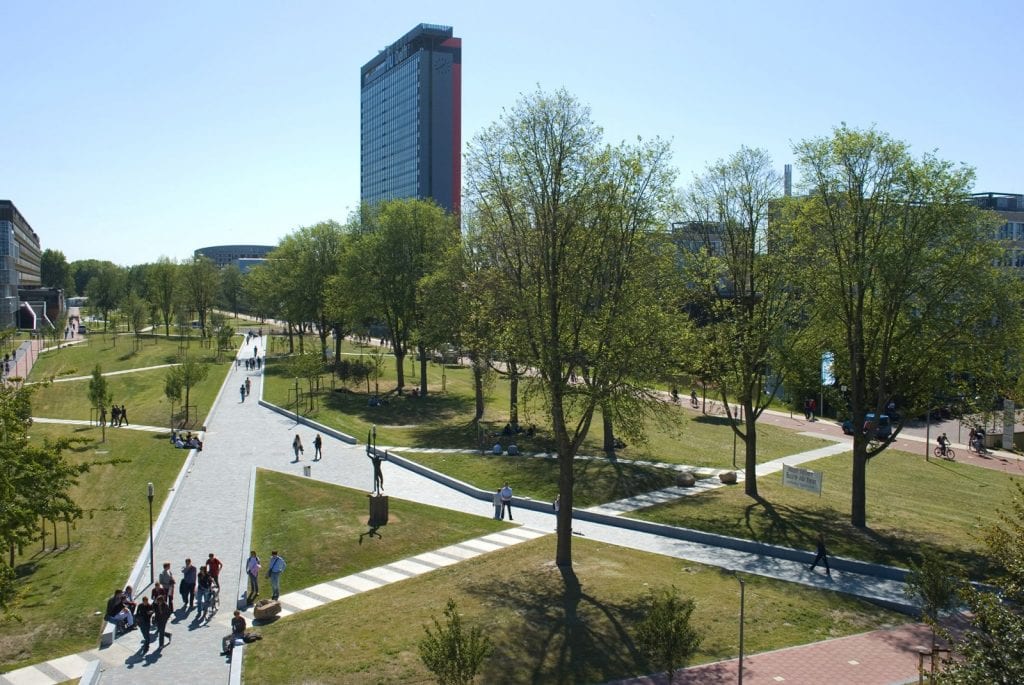QuTech, often acting as project coordinator, collaborates with leaders from academia and research institutes on a number of projects aimed at realising the promise of quantum computing. Find here some examples of QuTech’s current research programs spanning multiple partners from the Netherlands, Europe and beyond.
- The Quantum Limits project is a collaboration between QuTech, the department Quantum Nanoscience of the Delft University of Technology and the Leiden Institute of Physics of Leiden University. It is a ten-year program funded by a Summit grant of NWO, the Dutch Research Council, and aims to investigate the fundamental limits on physical processes imposed by the laws of quantum mechanics by exploring the behavior of quantum systems at the nanoscale.
- QuTech is proud to be the coordinator of a collaborative research project that focuses on high-fidelity operation in spin-qubit registers, funded by the US Army Research Office (ARO) and the Dutch Ministry of Defense. Menno Veldhorst is the Principal Investigator responsible for the overall project whose members include four universities and a national lab from across three continents.
- QuKiT, a project funded by an EIC Pathfinder grant, aims to develop a novel hybrid qubit, the Kitmon, a hybrid system that is composed of a superconducting qubit, integrated with a topologically protected Kitaev chain. The consortium is led by QuTech, with partners at the IOM Materials Foundry at the National Research Council of Italy, the Institute of Science and Technology Austria (ISTA), Energiatudomanyi Kutatokozpont, the Spanish National Research Council, the University of Augsburg and Orange Quantum Systems.
- In the Quantum Software Consortium, QuSoft, the University of Amsterdam (Centrum Wiskunde & Informatica), Leiden University and QuTech are combining forces to “program the computer of the future”. It is funded by the Ministry of Education, Culture and Science through the Dutch Research Council (NWO) as a Gravitation Project.
- QuMat – Materials for the Quantum Age – is another Dutch research program under the gravity initiative. It’s a collaboration between researchers in Delft, Utrecht, Groningen, Nijmegen, Eindhoven, and Twente, developing proto-type scalable, affordable computer materials that can host robust qubit states, while allowing coherent transport up to room temperature.
- End of 2022 and early 2023, scientists from QuTech and Eindhoven University of Technology first demonstrated the existence of an equal-spin electron pairing by using quantum dots defined in a specially grown semiconductor nanowire and created these particles, measuring their properties with great control.
(Inter)national policies
QuTech is taking a proactive role in the discussions around Dutch and European policies and programs. Together with other Dutch stakeholders (Quantum Delta NL), QuTech identified what is needed to maintain and strengthen the pioneering role of the Netherlands in the field of quantum technology. Find the outcomes in the National Agenda Quantum Technology.
